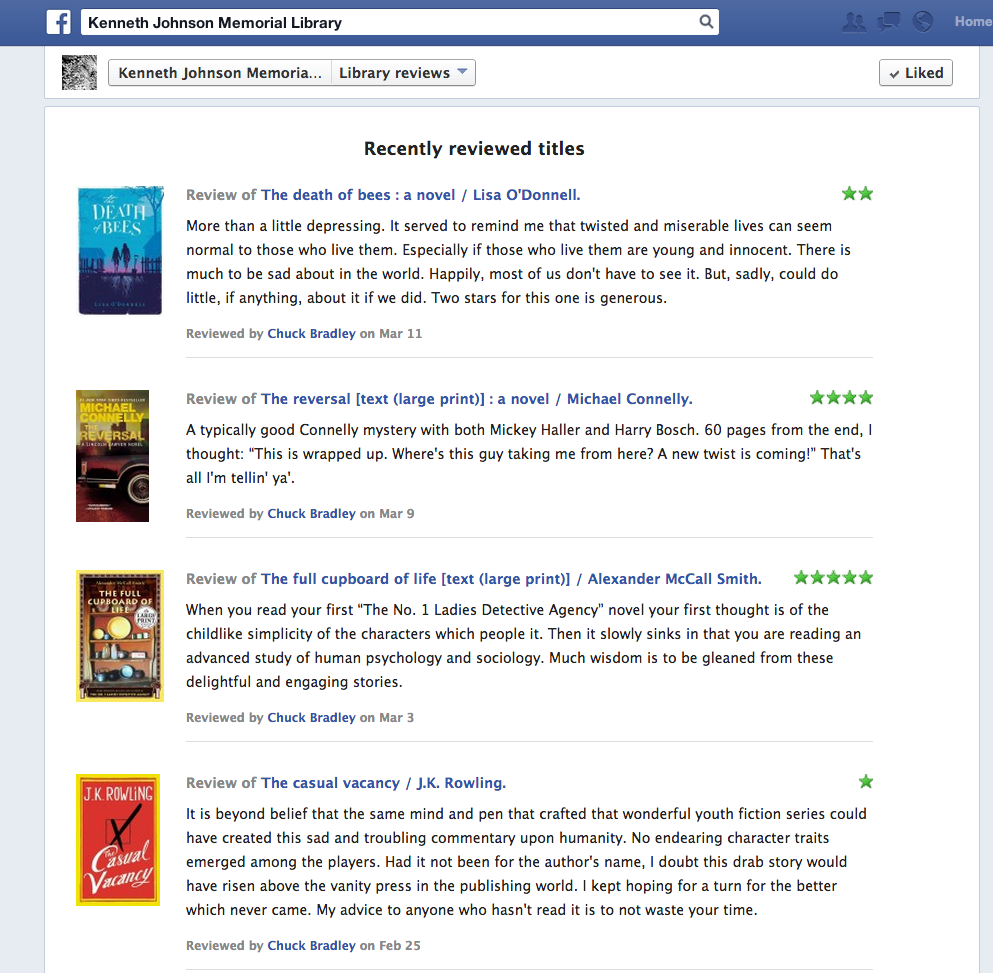Our new LTFL Reviews Facebook Pagetab feature lets you display recent reviews that have been written in your catalog right in Facebook—where your patrons are. This is a free update to any library that subscribes to our Reviews Enhancement. Make the most out of the reviews your patrons are writing and proudly show them off!
You can set it to show all recent reviews, or filter by category—show just the “staff picks” or “back to school” category you might have set up.
LibraryThing for Libraries Reviews Enhancement is a great addition to your library catalog—letting patrons rate and review right within your OPAC. You can also share reviews with hundreds of other libraries that use the service, as well as draw from over a million hand-vetted user reviews written by LibraryThing.com members.
The Reviews Facebook Pagetab feature dovetails nicely with the last feature we added: social media integration—allowing patrons to sign in with and post their reviews to Facebook and Twitter.
More: Reviews Blog Widget
While we’re on the subject of showing off reviews, the Reviews Enhancement also comes with a reviews blog widget, which lets you display new reviews anywhere (not just on Facebook!). Try adding a widget to your library’s homepage or blog to highlight the activity in your catalog. See for example the homepage of the Cass District Library, the blog of City of Hayward Public Library, or how the City of Port Phillip Library shows off “recent reviews from our catalogue.” Like the Facebook Pagetab, this feature also comes free with a subscription to the Reviews Enhancement!
Instructions on creating reviews widgets are here.
How to get Reviews in Facebook
If your library currently subscribes to the Reviews Enhancement, it’s quite easy to bring reviews into Facebook. Instructions to get started are here.
If you don’t yet subscribe to Reviews, just let me know if you’d be interested in a free trial! (email abby@librarything.com).





